
Republican senator is running for reelection, despite pledge not to seek a third term

This Republican senator is running for reelection, despite his earlier pledge not to seek a third term
From CNN’s Dan Merica
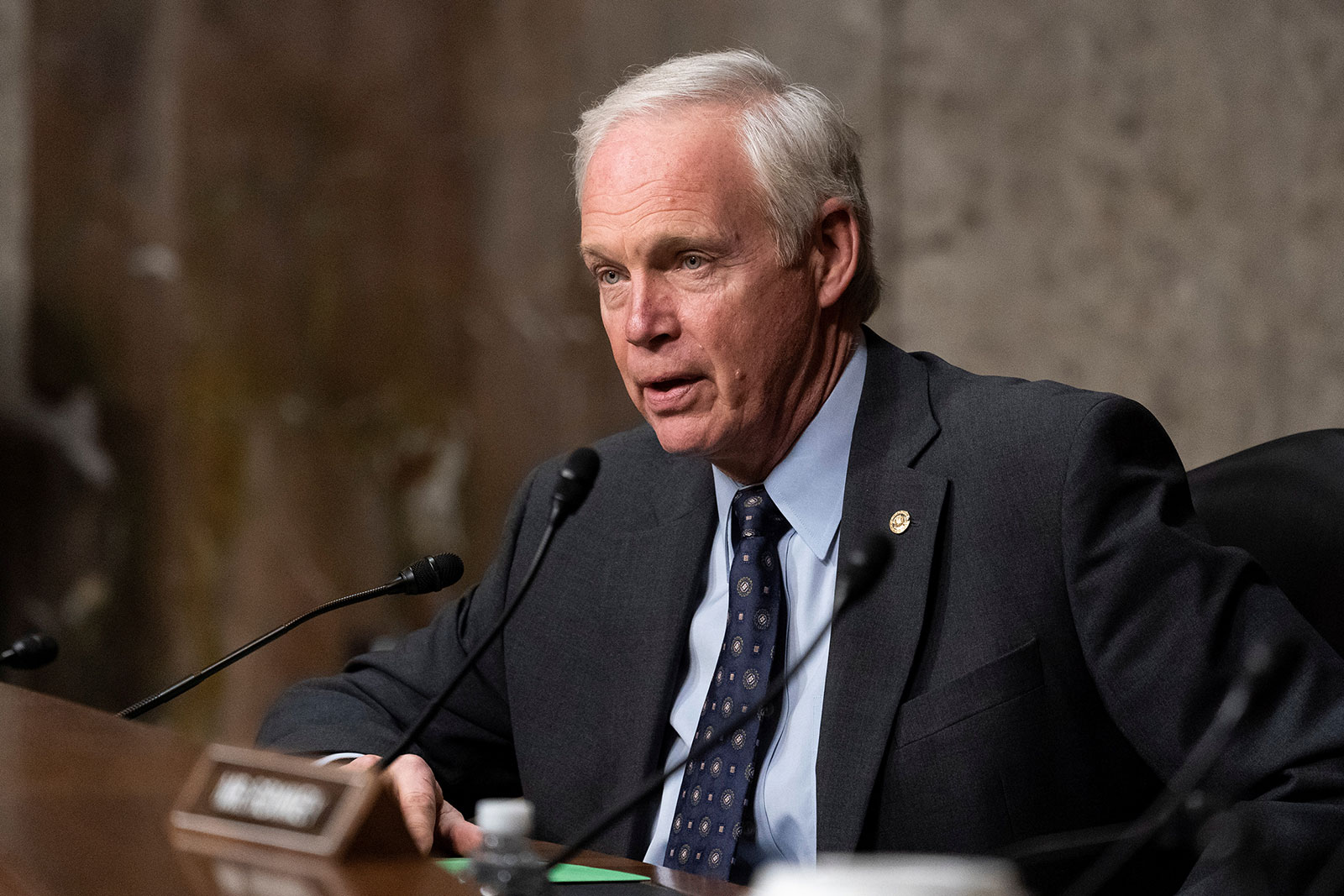
Republican Sen. Ron Johnson is gearing up for a third Senate campaign he pledged he wouldn’t run.
First elected in 2010, Johnson ran for reelection in 2016 by pledging that his second term would be his last. While the Republican senator waffled on running for reelection for months, he eventually decided to seek a third term, arguing that his initial pledge assumed Democrats would not control the White House, House and Senate.
Johnson is now set to make breaking up the Democratic control central to his campaign.
With the Democratic field consolidating around lieutenant governor Mandela Barnes, Johnson has already begun painting the Democrat as a “radical left candidate,” calling him a “progressive puppet out to fundamentally change America.”
Although Johnson has the national environment behind him — voters are dissatisfied with President Joe Biden and could take it out on Democrats in November — polls have consistently found him unpopular with Wisconsin voters. A recent Marquette Law School poll found that 46% of Wisconsin voters viewed him unfavorably, compared to 37% who had a favorable view.
To combat that, Johnson’s campaign and a series of outside groups have been airing positive ads about the Republican, hoping it will boost his standing with voters. One ad heralds Johnson for fighting against inflation, while another lauds his role in a 2018 law that helped terminally ill patients access experimental drug treatments. Senate Leadership Fund, the primary outside super PAC working for Republican Senate candidates, has reserved $15.2 million in ad time starting on September 6.
While Johnson is unpopular, Barnes has an opposite issue: He is largely unknown. A recent poll found that over 50% of Democratic primary voters didn’t know enough about him to have an opinion, something Republicans hope will allow them to easily define the Democratic opponent.
“He is going to be defined by all these left-wing positions that he took in the past,” said Jack Pandol, spokesperson for Senate Leadership Fund, a Republican super PAC focused on Senate races. “There is a lot that voters are going to be made aware of in the coming months and that will be the first information that some voters are getting about Barnes.”
Barnes, in an interview with CNN, responded to the planned attacks by saying, “People like Ron Johnson are going to lie about whatever, anything he can think of, to take the heat off his own bad behavior.”
Months away from the midterms, only a handful of GOP impeachment supporters will be on the ballot
Analysis from CNN’s Adam Wollner
About three months away from the midterm elections, many House Republicans who voted to impeach Donald Trump last year will not be on the ballot.
Over the weekend, CNN projected that Rep. Dan Newhouse of Washington state would emerge out of the top-two primary in the state’s 4th Congressional District along with Democrat Doug White. That makes Newhouse just the second member of the “Impeachment 10” to make it to the general election.
Just one other primary battle remains for the 10 House Republicans who supported the second impeachment of Trump — and have subsequently been a constant target of his wrath. Rep. Liz Cheney of Wyoming, the vice chair of the House select committee investigating the Jan. 6, 2021, attack that led to Trump’s impeachment, is on the ballot next Tuesday.
Here’s a look at how the members of the “Impeachment 10” have fared this midterm cycle:
Two won
- Newhouse advanced to the November ballot following last Tuesday’s primary despite facing a Trump-backed challenger, Loren Culp.
- Rep. David Valadao of California is the only House Republican impeachment backer who ran for reelection who did not face a Trump-backed primary challenger. Like Newhouse, Valadao benefitted from California’s top two-primary system, as he narrowly edged out Republican Chris Mathys, who ran as a Trump supporter, for the second spot on the general election ballot in the state’s battleground 22nd District.
Two lost
- Rep. Peter Meijer of Michigan lost his primary last Tuesday to John Gibbs, who has Trump’s endorsement. House Democrats’ campaign arm caused an uproar by boosting Gibbs, an election denier, in the Republican primary in hopes of making the state’s 3rd District an easier target in the fall.
- Rep. Tom Rice of South Carolina was handily defeated by the Trump-backed state Rep. Russell Fry in the state’s 7th District in June.
Four are retiring
- Rep. Fred Upton of Michigan decided this past spring against seeking a 19th term in Congress. He would have been forced to run in a newly drawn district against the Trump-backed Rep. Bill Huizenga, who ended up being unopposed in last week’s primary.
- Rep. John Katko of New York announced at the beginning of the year that he would retire from the state’s 24th District at the end of the term. New York’s congressional primaries, the first to take place under a new map, are scheduled for August 23.
- Rep. Adam Kinzinger of Illinois, one of two Republicans on the Jan. 6 committee, declined last fall to run for reelection in the state’s 16th District, clearing the way for GOP Rep. Darin LaHood, whose district was eliminated following the 2020 Census. Trump later endorsed LaHood.
- Rep. Anthony Gonzalez of Ohio was the first of the group to call it quits last September. Trump had initially endorsed a former aide, Max Miller, to unseat Gonzalez. But after redistricting, Miller ended up running in (and winning) the GOP primary for a different seat.
The races that are left
- Herrera Beutler is locked in a tight race with the Trump-backed Kent to advance to the general election in Washington’s 3rd District, where Democrat Marie Gluesenkamp Perez awaits. Republicans are favored to hold the seat in November.
- Cheney faces off against the Trump-endorsed Harriet Hageman on August 16 for Wyoming’s sole House seat. Despite running in a state that voted overwhelmingly for Trump, she is leaning hard into criticism of the former President. Last week, her campaign launched an ad featuring her father, former Vice President Dick Cheney, calling Trump a “coward.”
Read more.
Today’s primary is a test for how the GOP has changed in Wisconsin
From CNN’s Harry Enten
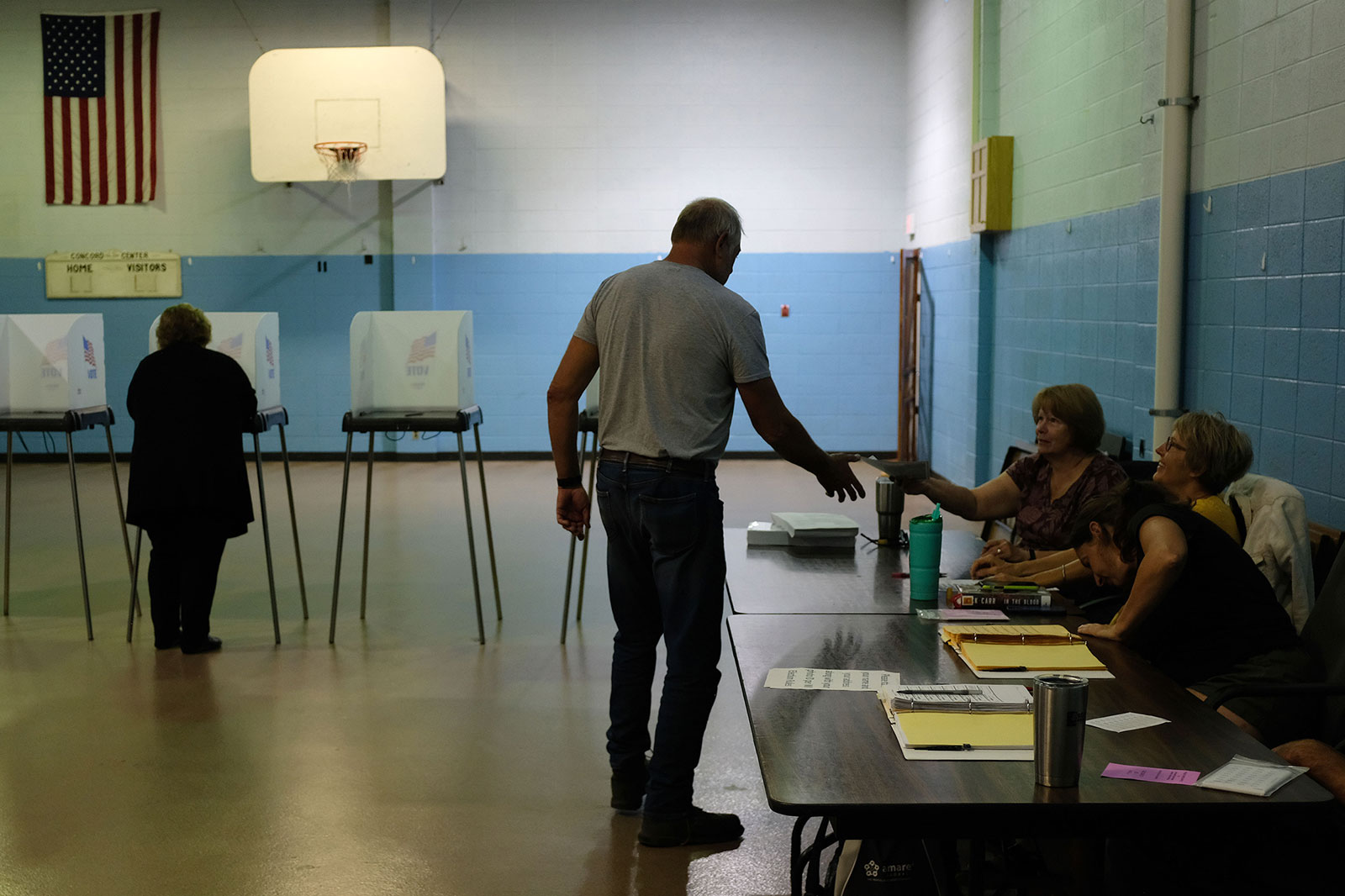
Wisconsin proved to be a bump in the roads for Donald Trump in the 2016 Republican presidential primary. He lost the contest to Sen. Ted Cruz, who rode conservative support in the Milwaukee suburbs to victory.
The setback was momentary for Trump, as it was the last primary he would lose on his way to the White House.
Today, we get a test of just how much the Republican Party has changed since that 2016 primary.
Trump is backing construction company owner Tim Michels in the Republican race for governor against former Lt. Gov. Rebecca Kleefisch, who has been endorsed by former Vice President Mike Pence and former Wisconsin Gov. Scott Walker, the state’s one-time darling of conservative voters.
That’s not the only place where Trump is making his preferences known. He has decided to go against the state assembly speaker Robin Vos.
Vos, who most analysts would agree is very conservative, has refused to overturn the 2020 election in Wisconsin — a race Trump lost by less than a point. His district centered in Racine County voted more in favor of Cruz than the state as a whole six years ago.
The question is now whether those same conservative voters have flipped allegiances to Trump. We’ll see that both in Vos’ district and statewide.
Connecticut’s new congressional map makes minor changes to existing district lines
From CNN’s Janie Boschma, Renée Rigdon, Byron Manley and Ethan Cohen
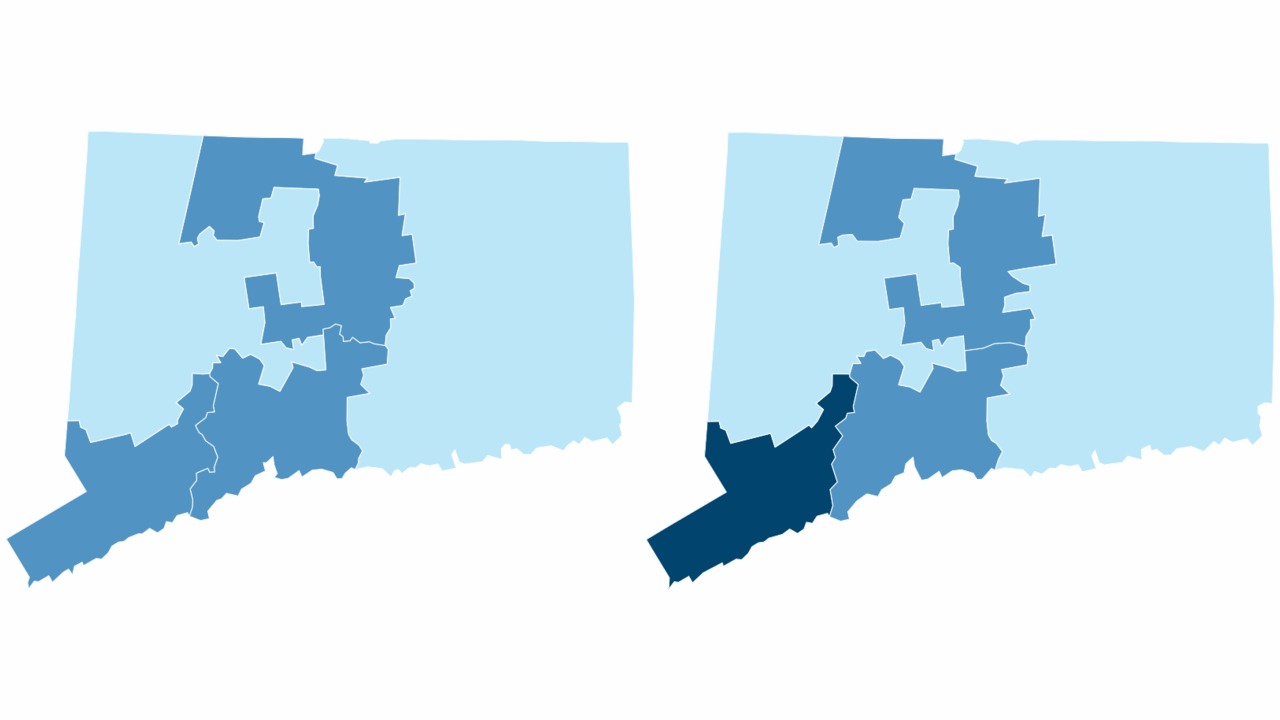
The state Supreme Court took over the drawing of Connecticut’s new congressional map after the state legislature and backup commission both failed to produce new district lines. The new map, which was drawn by Stanford professor Nate Persily as a special master for the court, makes only minimal changes to the existing lines.
Connecticut will continue to have five House seats. In all five, White residents represent the majority.
CNN’s Melissa DePalo, Eleanor Stubbs and Christopher Hickey contributed to this report.
Vermont is the only state that hasn’t sent a woman to Congress. One of these Democrats could change that.
From CNN’s Gregory Krieg
Vermont’s designation as the only state to never send a woman to Congress is poised to be dashed in November, with state Senate President Pro Tempore Becca Balint and Lt. Gov. Molly Gray leading the Democratic primary for the state’s at-large House seat.
The winner of Tuesday’s contest will be the overwhelming general election favorite to take the place of Rep. Peter Welch, who is running for the Senate seat being vacated by retiring Sen. Patrick Leahy. That month, voters will also cast ballots on an amendment to the state constitution that would protect abortion rights.
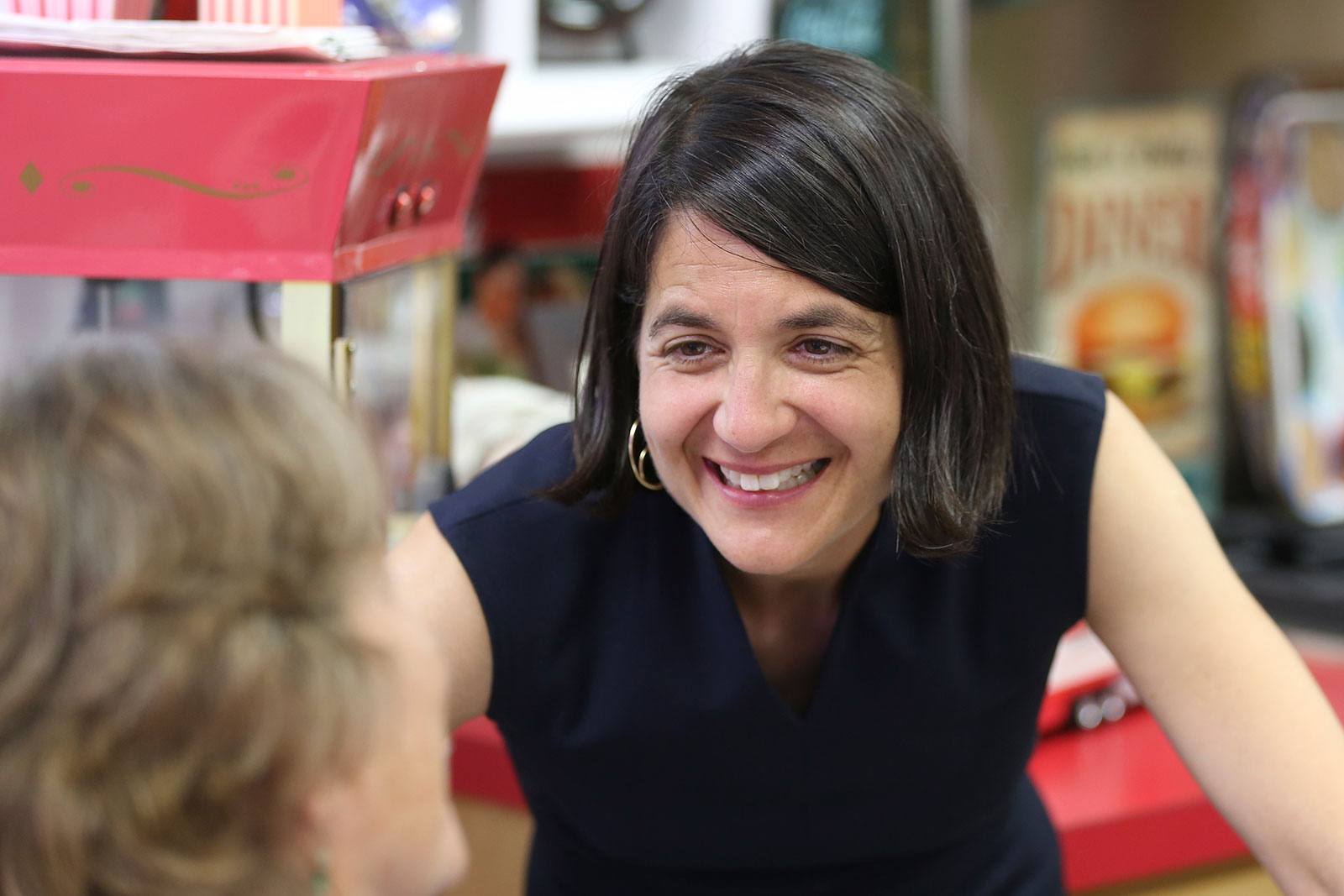
Key things to now about the candidates: Balint, a former schoolteacher first elected to the state legislature in 2014, is widely viewed as the frontrunner heading into Tuesday’s election, with Gray her closest rival. What began as a crowded field has thinned over the last few months. Louis Meyers, a physician, is the only other candidate actively campaigning following Sianay Chase Clifford’s withdrawal in July.
A former Welch staffer and Vermont assistant attorney general, Gray’s early momentum appears to have slowed over the summer as her rival solidified progressive support. Balint’s strength has been bolstered by endorsements from Vermont Sen. Bernie Sanders, the state’s popular independent progressive, and, importantly, state Sen. Kesha Ram Hinsdale, who dropped out of the primary in May and immediately backed Balint, helping to consolidate support on the left.
The contest for Vermont’s lone House seat was triggered by Leahy’s announcement last November that he would retire at the end of the term after nearly 50 years on the job. Welch quickly announced his candidacy to replace Leahy, which cleared the way for the rare open-seat race.
Leahy has not formally endorsed Gray, though he has donated to her cause and said he voted for her. His wife, Marcelle Leahy, endorsed Gray, who also has the support of moderate former Vermont Govs. Howard Dean and Madeleine Kunin.
Read more about the race here.
How the Wisconsin Democratic Senate primary suddenly changed within the span of a few days
From CNN’s Dan Merica

Two weeks ago, the Democratic Senate primary in Wisconsin was arguably the most closely watched primary contest on the left, pitting Lt. Gov. Mandela Barnes against Alex Lasry, the Milwaukee Bucks executive who spent more than $11 million of his own money on his campaign; Wisconsin state Treasurer Sarah Godlewski, who also poured millions of her own money into the race; and Outagamie County Executive Tom Nelson, a liberal leader with a loyal following in the state.
And then, in the span of a few days, the race that was became the race that wasn’t.
With internal polls showing Barnes opening a considerable lead, there were rumblings among Wisconsin Democrats that the field of four could shrink.
But few Democrats saw what happened next: Nelson, Lasry and Godlewski all ended their campaigns in the span of a few days, backed Barnes’ bid against Republican Sen. Ron Johnson and effectively ended the primary.
Nelson went first, announcing to his followers on July 25 that his campaign “ran out of money” so he would now endorse “the one candidate who is not trying to buy this election,” a dig against Lasry and Godlewski and an endorsement of Barnes.
Then the $11 million shoe dropped, with Lasry unexpectedly ending his bid on July 27, just weeks before the primary, telling reporters “it is clear the best person to be able to defeat Ron Johnson is Lt. Gov. Mandela Barnes.”
Lasry spent millions on his campaign and had just days until the primary. His campaign had even already booked television ad time for the final weeks of the campaign. But a Democratic official told CNN that a string of disappointing internal poll numbers suggested the race was out of reach in the final two weeks of the campaign.
And finally, on July 29, Godlewski ended her bid, backing Barnes and pledging to support him throughout his run.
The trio of announcements was surprising to almost all Democrats in Wisconsin — including Barnes himself.
“I could not have imagined it ending up this way,” Barnes told CNN in an interview. “To me, it shows just how important beating Ron Johnson is, just how important expanding the Democratic majority is.”
The key races to watch in Minnesota’s primary and special election
From CNN’s Melissa Holzberg DePalo, Ethan Cohen, Clara Grudberg and Nicholas Anastacio
In Minnesota, Democratic Gov. Tim Walz has only marginal competition for renomination, and he’ll likely face vaccine-skeptical doctor and former GOP state Sen. Scott Jensen in November. Jensen’s top challengers dropped out after he won the party’s endorsement at the state convention in May.
Minnesota will also hold a special election on Tuesday in its 1st Congressional District to fill the seat left vacant by late GOP Rep. Jim Hagedorn in February.
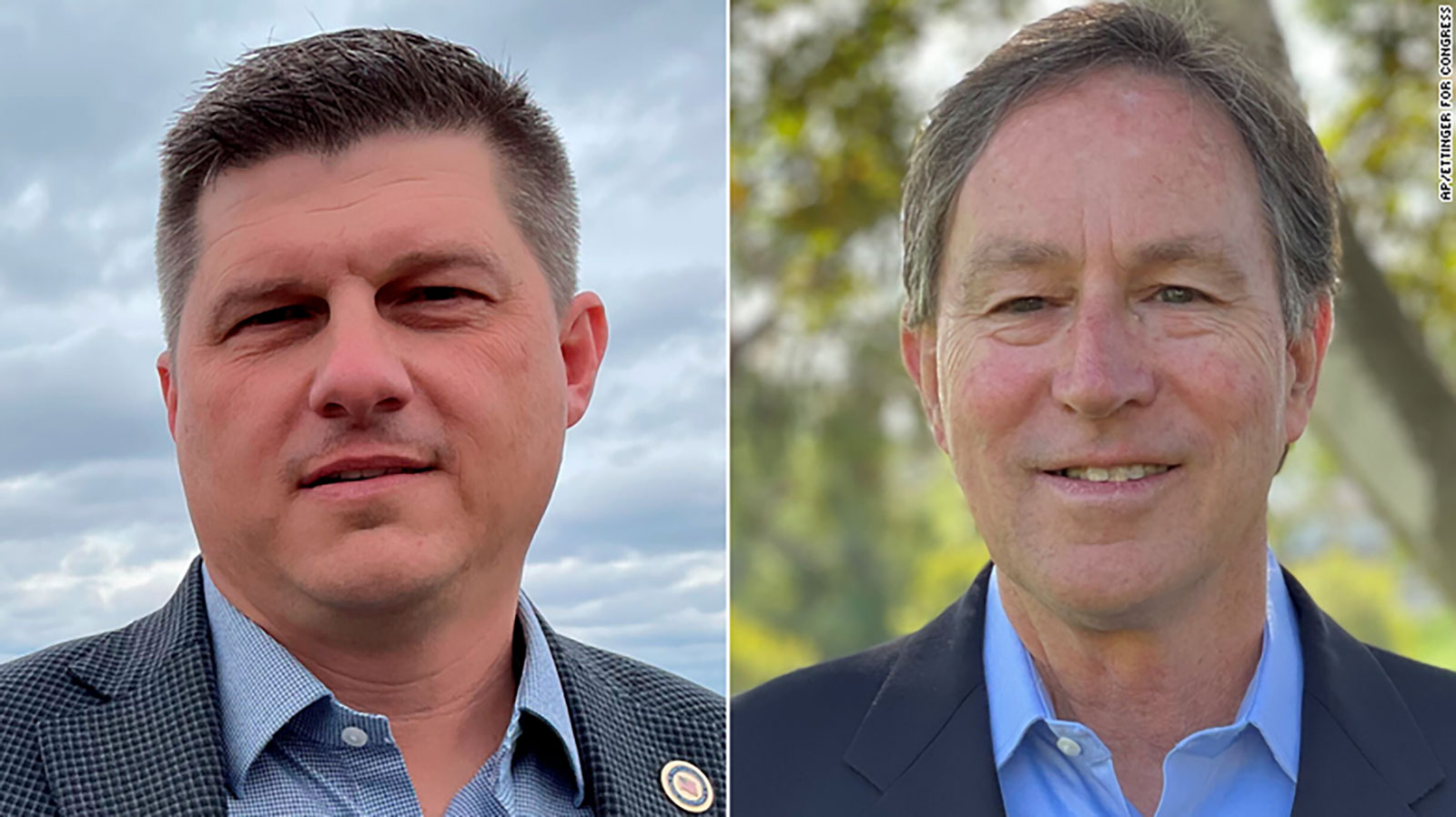
Here’s what to know about the special election: Republican Brad Finstad was a member of the Minnesota state House from 2003 to 2009 and served as director of USDA Rural Development for Minnesota in the Trump administration. Democratic nominee Jeff Ettinger is the former CEO of SPAM manufacturer Hormel Foods, a company with deep roots in this southern Minnesota district. The central issue of their campaigns has been inflation, with Ettinger touting his experience in food production as qualification to fight against rising food prices.
Both candidates will need to win their parties’ primaries on the same day in order to compete for a full House term in November. Trump won this district by 10 percentage points in 2020, suggesting Finstad is favored to hold the seat for the GOP, but the race will be one of the first glimpses we’ve had of the political environment post-Roe v. Wade.
Poll times: Polls across the state will close at 9 p.m. ET.
Voter eligibility: Minnesota doesn’t have party registration, so registered voters can vote in either primary.
See how redistricting changes Minnesota’s voter landscape here.
See how Wisconsin’s new congressional map maintains Republican advantage in the House
From CNN’s Janie Boschma, Renée Rigdon, Byron Manley and Ethan Cohen
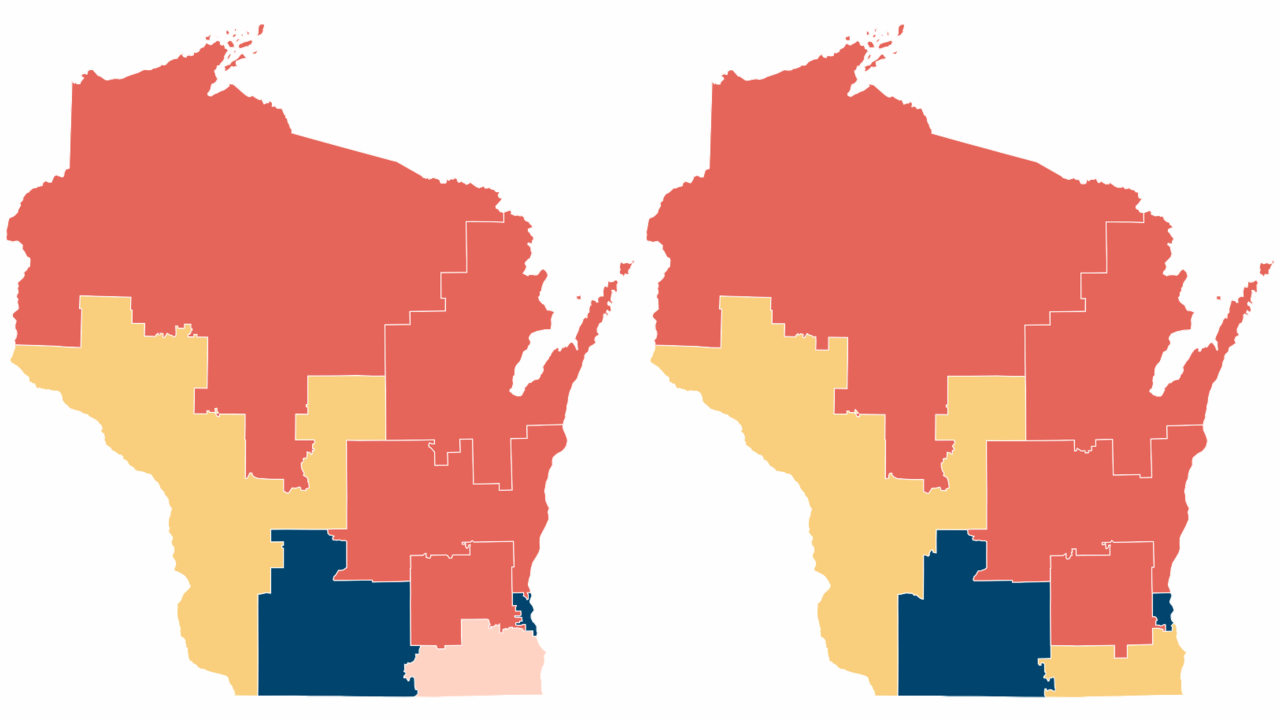
The Wisconsin Supreme Court adopted Democratic Gov. Tony Evers’ proposed congressional lines as the state’s new map. It keeps Wisconsin’s eight congressional districts largely intact and likely maintains the Republican advantage in the House delegation.
In the 4-3 majority opinion, Wisconsin Justice Brian Hagedorn wrote that Evers’ map came closest to the “least change” directive the court said it would strive to adopt when it took over the map-drawing process. The court got involved after Evers vetoed the map the Republican-controlled state legislature passed last year.
Voter demographics: In seven of the House seats, White residents represent the majority. In the 4th District, home to Milwaukee, there isn’t one single racial or ethnic group in the majority.
CNN’s Melissa DePalo, Eleanor Stubbs and Christopher Hickey contributed to this report.
What to look out for in today’s primaries
From CNN’s Eric Bradner, Dan Merica and Gregory Krieg
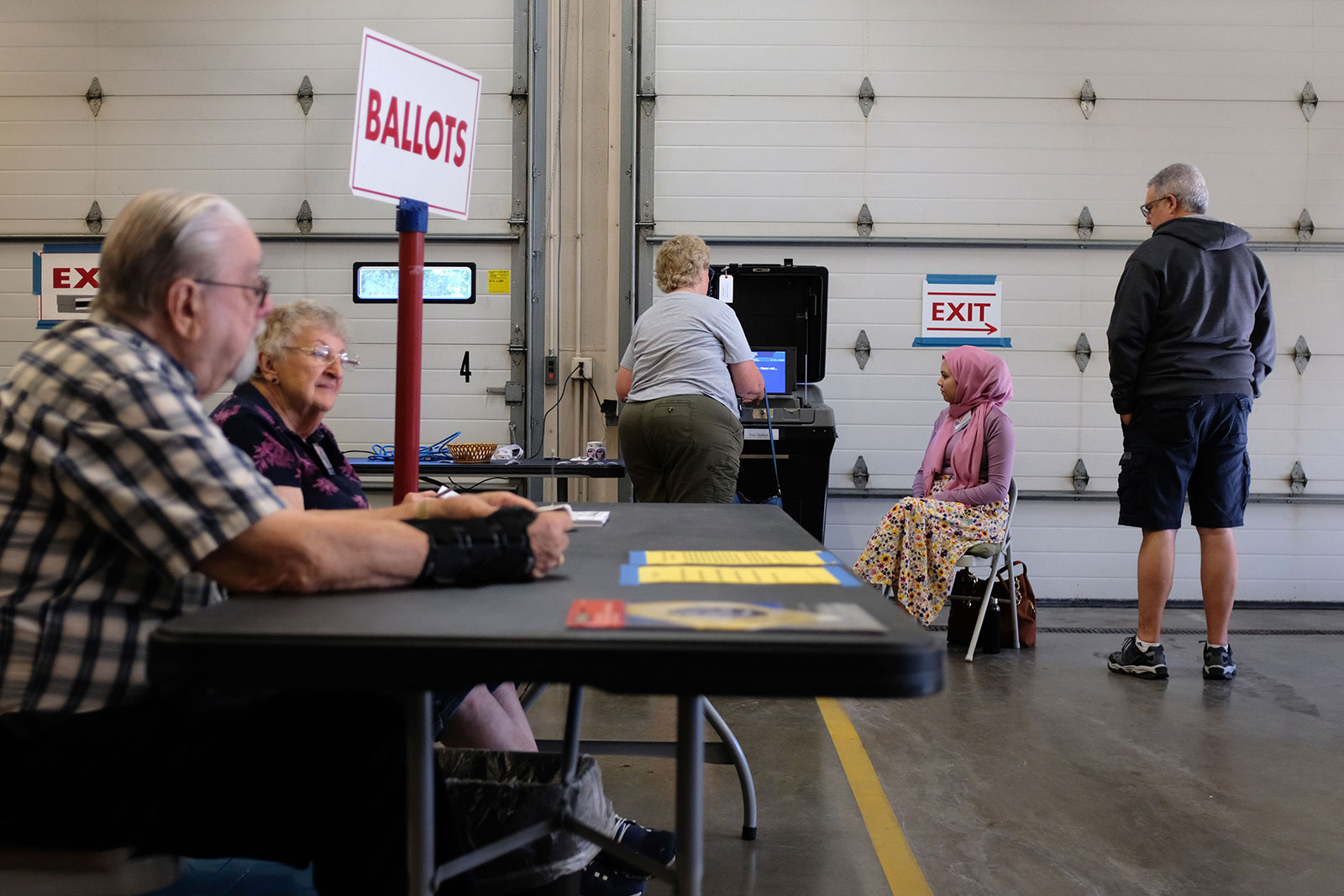
Primaries in the Upper Midwest on Tuesday will set the stage for two major governor’s races, as Republicans in Wisconsin and Minnesota select their nominees to take on those states’ Democratic incumbents in November.
Minnesota is also set to fill a House seat after former GOP Rep. Jim Hagedorn died in February.
Meanwhile, in Vermont, Rep. Peter Welch is running to replace retiring Democratic Sen. Patrick Leahy, which opens up the state’s lone House seat. The state’s lieutenant governor and its Senate president pro tempore – both Democrats – are vying to become the first woman to ever represent Vermont in Congress.
Heavily Democratic Connecticut is also holding primaries on Tuesday, with Democratic Sen. Richard Blumenthal and Gov. Ned Lamont up for reelection this fall.
Here are a few things to watch in Tuesday’s primaries:
Trump vs. Pence in Wisconsin governor’s race
The proxy battle over the future of the Republican Party between former President Donald Trump and former Vice President Mike Pence continues Tuesday in Wisconsin, where a Pence-endorsed establishment favorite faces off against a Trump-backed outsider in a state where he has falsely claimed the 2020 election results were fraudulent.
It’s a replay of similar gubernatorial primaries in recent weeks in Arizona, where Trump’s candidate won last week, and Georgia, where the Pence-backed Gov. Brian Kemp fended off a Trump-aligned challenger.
In Wisconsin, former Lt. Gov. Rebecca Kleefisch entered the race as the GOP’s heir apparent in a battleground state long dominated by former Gov. Scott Walker. She spent eight years as Walker’s No. 2, and is backed by Pence and other establishment Republicans.
But then construction company owner Tim Michels entered the race, fueled by millions of dollars of his own wealth and a key endorsement. He is campaigning as an outsider, with Trump’s help; the former President at a recent rally said Kleefisch is “the handpicked candidate of the failed establishment, the RINOs.”
Both have embraced Trump’s lies about fraud in the 2020 election. Kleefisch called the 2020 election “rigged,” but said she would not attempt to decertify its results because it is not legally possible to do so. Michels, however, said in a debate that “everything is on the table,” indicating he would entertain measures that would seek to decertify President Joe Biden’s victory in Wisconsin.
The winner of the primary will take on Democratic Gov. Tony Evers, who is seeking a second term in what’s expected to be one of the nation’s most competitive gubernatorial contests this fall.
Another race to watch in Wisconsin is Assembly Speaker Robin Vos’ primary against little-known Adam Steen, who was endorsed by Trump after the former President decided Vos – a powerful Republican who had tried to appease Trump by hiring a former state Supreme Court justice to investigate the 2020 election – had done too little to try to overturn Wisconsin’s results. Vos said last month the former President had called him the week before as part of a fresh effort to decertify the state’s 2020 results.
The Senate primary that wasn’t
Two weeks ago, the Democratic Senate primary in Wisconsin was arguably the most closely watched primary contest on the left, pitting Lt. Gov. Mandela Barnes against Alex Lasry, the Milwaukee Bucks executive who spent over $12 million of his own money on his campaign; Wisconsin state Treasurer Sarah Godlewski; and Outagamie County Executive Tom Nelson.
And then it wasn’t.
After internal polls showed Barnes’ lead over his opponents growing, all three bowed out in the span of a few days, with Nelson, Lasry and Godlewski all endorsing the lieutenant governor.
“I could not have imagined it ending up this way,” Barnes told CNN. “To me, it shows just how important beating Ron Johnson is, just how important expanding the Democratic majority is.”
The consolidation means Barnes and Democrats can pivot earlier to their end goal: defeating Republican Sen. Ron Johnson in November.
Johnson, who opted to run for a third term after pledging in 2016 that his second term would be his last, has drawn Democratic ire for a host of comments on the coronavirus, the January 6, 2021, attack, and his personal wealth. But he has proven resilient in the past, ensuring that the Senate race in Wisconsin will be one of the closest watched contests of the 2022 cycle.
Southern Minnesota gets a new representative
Voters in Southern Minnesota will select a new congressional representative on Tuesday after Rep. Jim Hagedorn died in February from kidney cancer.
The special election, which comes at the same time Minnesota voters will vote in the regular 2022 primary, pits Republican Brad Finstad, the former head of USDA Rural Development for Minnesota, against Democrat Jeffrey Ettinger, who previously worked as CEO of Hormel Foods.
The district, which stretches across Minnesota’s entire Southern border, leans toward Republicans.
While voters select their congressman in the special election, they will also vote in the general election primary, selecting which candidates will get the chance to try to represent the district for a full term starting in 2023. Finstad and Ettinger are candidates in that race, as well.
There are other contests worth watching in Minnesota, including well-funded challenges to incumbents. Democratic Rep. Ilhan Omar is being challenged by former Minneapolis City Council member Don Samuels, while Rep. Betty McCollum is facing a challenge from progressive Amane Badhasso.
Keep reading here.
Source: https://www.cnn.com/politics/live-news/primary-election-results-wisconsin-vermont-minnesota/h_5e28e59cbd2b8d5b4ffddec03bbc74a0
















